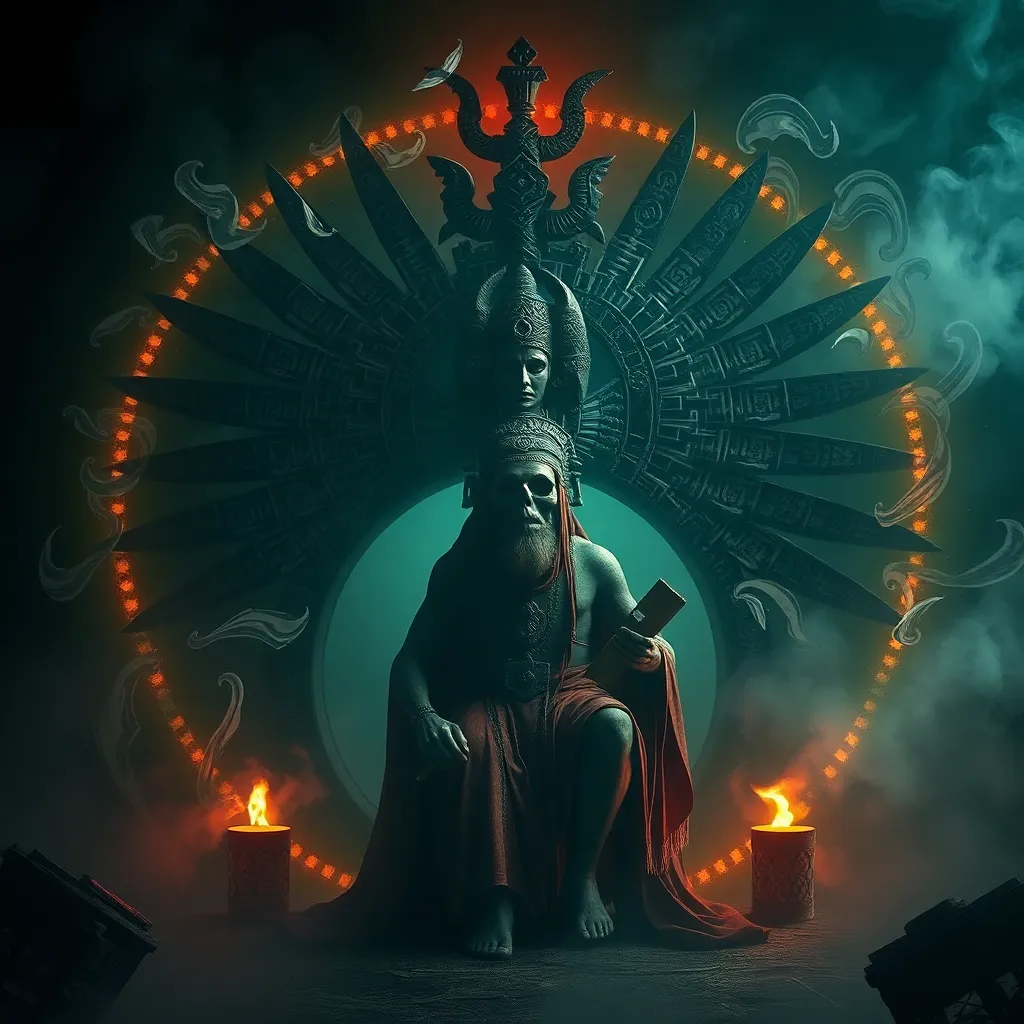Cerberus and the Hero: Exploring the Mythical Encounters Between Men and Monster
I. Introduction
Cerberus, the multi-headed hound of Greek mythology, is one of the most iconic figures associated with the Underworld. Known for his fearsome appearance and unwavering loyalty to Hades, the god of the dead, Cerberus serves as a guardian of the gates that separate the living from the dead. This article explores the complex and often symbolic encounters between heroes and this monstrous figure, highlighting the significance of their dynamics in ancient lore.
The hero-monster dynamic is a recurring theme in mythology, serving as a reflection of human fears, struggles, and triumphs. Through the lens of these encounters, we can gain insight into the challenges faced by heroes and the lessons learned from their confrontations with formidable foes. The purpose of this article is to delve into the origins of Cerberus, analyze notable hero encounters, and explore the enduring symbolism and relevance of these myths in contemporary culture.
II. The Origins of Cerberus
Cerberus is often depicted as a fearsome creature with three heads, a serpent for a tail, and a body covered in fur. His terrifying visage and formidable presence make him a symbol of the afterlife’s dangers and mysteries. Each head of Cerberus is said to represent a different aspect of the beast: the past, present, and future, emphasizing his role in the cycle of life and death.
In terms of lineage, Cerberus is the offspring of Echidna, a monstrous figure herself, and Typhon, a giant and one of the deadliest creatures in Greek mythology. This heritage imbues Cerberus with both monstrosity and an inherent connection to the forces of nature and chaos. As the guardian of the Underworld, Cerberus’s primary role is to prevent the dead from escaping and the living from entering without permission, making him a critical figure in the mythological landscape.
III. The Hero’s Journey in Mythology
The concept of the hero is central to many myths, defined by specific characteristics that define their journeys. Heroes often embark on quests that require not only physical strength but also moral fortitude and intelligence. In Greek mythology, heroes such as Heracles, Perseus, and Theseus exhibit common traits, including bravery, resilience, and a willingness to confront adversity.
Encounters with monsters serve several purposes in these heroic narratives:
- Tests of Courage: Heroes must confront their fears and prove their worth.
- Symbolic Challenges: Monsters often represent personal or societal struggles.
- Transformation: Encounters with monsters frequently lead to personal growth and development.
IV. Notable Hero-Cerberus Encounters
One of the most famous encounters between a hero and Cerberus is that of Heracles (Hercules) during his Twelve Labors. Tasked with capturing Cerberus, Heracles’s journey to the Underworld is both literal and metaphorical.
A. Heracles and the Capture of Cerberus
The context of this labor is crucial—it represents the culmination of Heracles’s trials and his quest for redemption. By capturing Cerberus, he not only proves his strength but also demonstrates his ability to confront death itself. This encounter is laden with symbolism, as it signifies the hero’s mastery over fear and the acceptance of mortality.
B. Other Heroes Who Faced Cerberus
Aside from Heracles, other heroes have encountered Cerberus in various contexts:
- Orpheus: The legendary musician descended into the Underworld to retrieve his wife, Eurydice. His enchanting music lulled Cerberus, allowing him passage.
- Theseus: This hero also faced Cerberus during his adventures, showcasing the beast as a common barrier to those seeking to navigate the realms of life and death.
These encounters highlight the significance of Cerberus as both a guardian and a barrier, representing the trials heroes must face when confronting their destinies.
V. Symbolism of Cerberus in Heroic Myths
Cerberus embodies a complex symbolism within heroic myths:
- Fear and Death: As a guardian of the Underworld, Cerberus represents the fears associated with death and the unknown.
- Guardian versus Monster: The duality of Cerberus as both a protector and a creature of terror invites reflection on the nature of fear and safety.
- Lessons Learned: Hero-monster interactions often lead to personal growth, as heroes confront their fears and learn valuable lessons about life and mortality.
VI. Cerberus in Modern Culture
The influence of Cerberus extends far beyond ancient mythology, permeating modern literature, film, and art. From Dante Alighieri’s depiction in “The Divine Comedy” to contemporary references in video games and movies, Cerberus remains a potent symbol of the hero-monster dynamic.
The evolution of this narrative showcases a shift in how heroes and monsters are portrayed. Modern interpretations often blur the lines between heroism and monstrosity, inviting audiences to question traditional notions of good and evil.
VII. The Role of Myth in Understanding Human Nature
Mythological narratives serve as reflections of human psychology, particularly in the context of hero-monster conflicts. These stories can be seen as allegories for internal struggles, representing the fears and challenges that individuals face in their own lives.
Moreover, the moral and ethical lessons derived from these myths continue to resonate today:
- Confronting Fears: The necessity of facing one’s fears is a timeless theme.
- Redemption and Growth: Heroes often emerge transformed after their trials, emphasizing the potential for personal growth.
- Understanding Duality: The complexity of good and evil is explored through the lens of hero-monster interactions.
In today’s society, Cerberus serves as a reminder of the inevitable confrontation with death and the importance of understanding and overcoming our fears.
VIII. Conclusion
In closing, the encounters between heroes and Cerberus illuminate profound themes within Greek mythology, including the struggle against fear, the quest for understanding, and the acceptance of mortality. By examining these narratives, we gain insight into the human condition and the timeless lessons embedded in these ancient tales.
The legacy of Cerberus and heroic encounters endures, inviting us to explore further the complexities of mythological themes and their relevance in our lives today.
https://www.youtube.com/watch?v=nDH014CJ1-I



